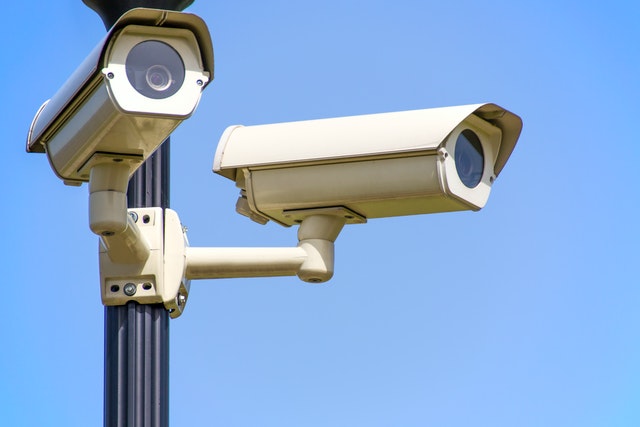Call Center Security 101: How to Guarantee Safety for Your Clients

With call center staff working remotely, cybercriminals on the loose, and sophisticated ways to compromise data emerging, guaranteeing the security of your call center will always be a major responsibility.
According to TRUSTID, call centers are now the vector of choice for criminal attacks in financial services, with 23% of attacks initiated with data stolen from call centers.
Here are some tips from a call center that always puts client safety first.
8 Steps to Help You Guarantee Safety for Your Clients
Best believe that PCI (Payment Card Industry) compliance alone won’t cut it–you want to go beyond protecting credit card numbers to protect all your customers’ data.
To achieve this, you’ll need to set up certain security profiles to ensure your organization, associates, and customers are all safe.
Ensuring call center security is a great way to help your customers feel safe when interacting with your company. In this section, we’ll show you areas of your call center to implement security and tips to go about it.
1. Pay Attention to Physical Security
As strange as it may sound, physical security is where it all starts. Cybercriminals aren’t the only threat to your call center.
Here are a few physical security tips you can implement at your call center right away:
- Lock all doors: The last to leave–usually a manager–should always make sure every exit is properly locked.
- Limit access: Whether you are using number pads, swipe cards, or biometric locks, ensure that only the people who work on each floor are ever there.
- Have every rep wear their ID badge: Every ID badge should have their name, photo, ID number, and area where they work in. A glance at the name badge lets a supervisor know if someone is where they shouldn’t be.
- Restrict access to technical spaces: Your switches, wires, servers, and computers are some of the most valuable possessions in your call center.
- Ban cellphones and paper on the floor: Promote PCI compliance by restricting the use of cell phones and wearable tech to a designated area in your building. Attach penalties to using cell phones outside this area.
- Install cameras: However, before you do, check state laws on video recordings. Also, get expressly written acknowledgment of recordings when you hire your employees. This document should state that they know that their calls will be monitored and recorded.

2. Conduct Background Checks on Employees
Background checks are necessary when hiring call center agents. You need to know if your potential call center agents have previously committed fraud, robbery, or identity theft. A criminal background in these areas is especially concerning for call center security.
3. Implement Digital Security Across All Devices
Another way to guarantee safety for your clients is to ensure adequate security across all digital channels at your call center. Start from the basics – put up firewalls – but don’t stop there. Install enterprise virus protection software on every device. Other tips to improve digital security at your call center include:
- Two-factor verification: Enable double sign-in methods on all workstations.
- Logging: Document all newly installed software, integrations, and/or updates for easy traceability if something goes wrong.
- Regular software updates: Update your security software and integrations as soon as one is available. This will ensure that you’re using the latest security features.
- Firewall tests: Conduct periodic firewall penetration tests to be sure your network is still secure.
4. Train Your Employees to Detect Fraud
Apart from equipping your reps with skills to make them more efficient at work, you also need to train them to detect fraud. This is especially important because they’ll likely be cybercriminals’ first point of contact.
Train your employees to recognize phishing or spear-phishing attempts. Unlike phishing which is simply when a cybercriminal impersonates a reputable company in an email to get access to sensitive information, spear phishing is more personalized and easier to fall for.
5. Take Advantage of Technology Tools
Just as the emergence of new tech creates more potentially sophisticated ways to compromise data, new and existing call center technologies can also help you combat them. They can go a long way to help you secure your call center if you know which ones to deploy.
Voice authentication, for example, is an effective way to guarantee call center security for your clients. It involves implementing a system that allows customers to opt-in for voice recognition. After their voice is saved in the company’s servers, the call center system can confirm their identity on their subsequent calls.
You can also implement speech analytics and program it to flag requests for a change of address or new debit cards. You can then assign a team to check through them for any unusual occurrences.
Another method is to use the ANI (automatic number identification) feature to identify numbers that call in more than 45 times a month. Also, identify the reps who attended to such callers and ensure that nothing suspicious is going on.

6. Encrypt Sensitive Information Automatically
Many recorded calls include sensitive customer information like account or social security numbers, credit card details, addresses, or birthdates. If a call center can’t handle these pieces of information the right way, it could lead to a lot of trouble.
The best way to avoid this is to deploy automatic encryptions on all your systems. This way, sensitive information is automatically masked, whether on calls or inputted as text.
In addition, prompt your customers to activate two-factor authentication to prevent phishing attempts. When they forget their password, you will send them a text or email to confirm it is the actual person requesting the information. After this, you can then authorize them to go through another security protocol to sign in.
7. Be Transparent About Customer Data Privacy
According to a study by McKinsey, 87% of people said they would not do business with a company if they had concerns about its security practices. So, it’s not enough to put security measures in place to guarantee your clients’ safety. Communicate your efforts to them as well.
Your clients will be more comfortable doing business with you if they know your efforts to prioritize their safety. They’ll also be willing to give you personal information if they know why you need it.
8. Enforce Call Center Security Policies and Procedures
Ensure that every manager, supervisor, agent, and janitor knows what the security prootocols of your call center are.
PCI compliance is a common one for contact centers that handle credit card information.
Depending on your vertical, there are other security protocols like HIPAA (medical data) and SOC 2 Compliance that you could put in place to add another level of security to the mix.
Last but not least, don’t ever get complacent. Keep exploring ways to keep your organization safe from data theft. Sometimes, we are the first line of defense between scams and victims.
What does your contact center do to keep client and customer information secure?
Let us know in the comments below!



